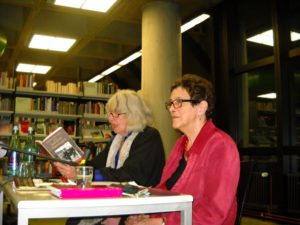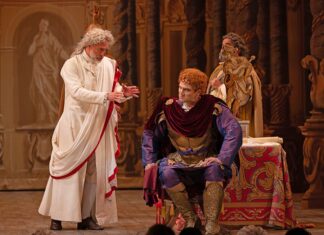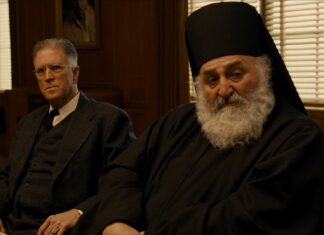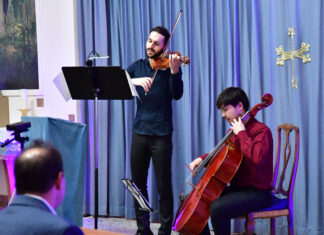By Muriel Mirak-Weissbach
Special to the Mirror-Spectator
BOCHUM, Germany — That little book by Dr. Hagop Martin Deranian continues to provoke debate, now even in Germany. The slim volume, President Calvin Coolidge and the Armenian Orphan Rug, released last fall by the Armenian Cultural Foundation, unleashed broad discussion in the US, because the story it tells raises questions about the 1915 Genocide, questions which a pro-Turkish lobby finds increasingly uncomfortable as the centenary draws near. The story is about an oriental rug woven by Armenian orphan girls in Ghazir, Lebanon (then Syria) as a gift for then-President Coolidge back in 1925, a token of gratitude for the assistance lent by the American government and people to the orphans of the Genocide. Controversy arose when requests came to the White House to release the rug for public showing. (See Armenian Mirror-Spectator, March 1.)
In May, the book appeared in a German translation and was launched officially at an event hosted by the Armenian Embassy in Berlin. Last week, it was presented again, in another German city, Bochum, located in the industrial Ruhr region, and the home of one of the oldest Armenian organizations in the country. The Armenian-Academic Union, founded in 1860, co-sponsored the event with the Bochum public library in the context of the AAU’s Armenian Cultural Autumn, a series of cultural events from August to November. The cultural autumn opened with traditional music and folk dancing offered by the Geghart ensemble from Yerevan, and included round table discussions on the Diaspora, lectures on the Genocide and several book presentations.
On September 23, Deranian’s book was on the agenda. Heide Rieck-Wotke, the spokeswoman of the Bochum Writers’ Union, invited this writer to join her on the podium to present the book. Several local newspapers ran articles based on a review of the book by Rieck-Wotke, which she dubbed “a book of hope.” She is the author of several novels and poetry collections, and has dealt with themes from the Holocaust to slave laborers. Recently, she has explored the Armenian issue, and is actively promoting Armenian culture here, also through translation projects to bring Armenian poets to a German readership. Not only an author, but also a former actress and theatre teacher, at the Bochum event, she offered dramatic readings of parts of the book, which I introduced. The audience was made up largely of Germans, many of Armenian descent, and also included two Turkish nationalists, whose sole purpose in attending seemed to be to disrupt the discussion. First, one stood up to read out an obscure quotation from some source claiming the Genocide never occurred. His companion later offered a book purportedly proving the same. Turmoil ensued; many of the Armenians present reacted emotionally, and, had it not been for the timely and energetic intervention of one young man who could throw a robust physique behind his demand that they desist, it might have come to fisticuffs.








